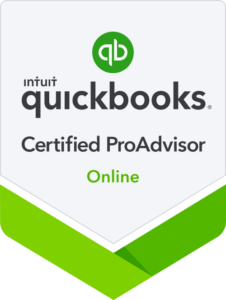
Property taxes that are calculated in Torrance, California are done so in accordance with Proposition 13, which include a property’s assessed valuation (the original purchase price), plus the cost of improvements, plus additional tax rates, plus direct assessments taxes. Property taxes fluctuate yearly. According to the County of Los Angeles Treasurer and Tax Collector, the property tax rate for the 2019-2020 fiscal year, is 1.120691% plus direct assessments, approximately $300-$400 per parcel (i.e. school parcel taxes). The Los Angeles County fiscal tax year begins July 1st and ends June 30th of the following calendar year (i.e. July 1, 2019 through June 30, 2020). For those living in Torrance California, understanding the tax implications for purchasing and/ or owning a residence in the South Bay region of Los Angeles can be helpful for accurate financial planning.
Proposition 13
The People’s Initiative to Limit Property Taxation, also known as Proposition 13, was passed into the California Constitution as an amendment in 1978. As a partial result of implementing Proposition 13, California has one of the lowest property tax rates in the country. The perimeters of Proposition 13 are as follows:
- Limiting property taxes to at most 1% of the property’s cash value
- Limiting annual increases due to property value appreciation to 2% each year
- Only allowing a property to be reassessed for tax purposes if there is a change in ownership and/ or construction is done to the property
- Allows local government to change additional fixed amount for special assessments
Aside from the obvious benefits, an additional benefit of Proposition 13 is that it allowed and continues to allow elderly Californians to remain the their homes as exponentially increasing property taxes would have otherwise priced them out.
General Tax Levy
The General Levy of Assessment that makes up a component of one’s property tax bill should increase no more than 2% from the previous year, unless there have been property improvements on one’s land. The General Tax Levy is based on the assessed land value, fixtures, and improvements. Additionally, as a surtax levied on property owners it can also include partial costs associated with local infrastructure projects (i.e. road repairs, sewer line maintenance…etc.). The General Levy Tax typically makes up the largest portion of one’s property tax bill.
Property Tax Due Date
The Treasurer and Tax Collector mail property tax bills in October of each year. Property taxes are typically paid in two installments, however an individual may opt to pay both installments at the same time. The first property tax installment is due on November 1st. There is a little leeway in that an individual actually has until December 10th to pay his or her property tax bill until it becomes delinquent. The second installment is due on February 1st, with a hard deadline of April 10th before it is marked as past due. If the proper entity (Treasurer and Tax Collector) does not receive payment, or USPS does not postmark the payment on or before the delinquent date a penalty will be imposed.
For Further Information
If you follow your instincts and are clear with your needs you will likely find an accountant that is an excellent fit. While the task to connect with the right accountant may seem overwhelming, please keep in mind it will be worth it in the long run. The financial guidance that a good accountant will provide during one’s lifetime can result in significant financial gain. With the full range of accounting services Allman & Allman APAC provide, we are certainly equipped with the expertise for which you may be in need. Seeking guidance from our firm will proved you the opportunity to work with individuals armed with broad and deep financial knowledge, able to provide advice on a wide range of issues. As a full-service public accounting firm, our professional services will surely help you succeed and thrive. Please feel free to reach out to Allman & Allman APAC via email at [email protected] or via phone at 760-406-5056 to discuss your situation and find out how we can help you grow. We look forward to hearing from you.
References
“Calculating South Bay Property Taxes for Fiscal Year 2019-2020.” Palos Verdes Real Estate Agent & Realtor – Maureen Megowan, www.maureenmegowan.com/buyers/calculation-of-property-taxes/.
Kagan, Julia. “What’s a Special Assessment Tax?” Investopedia, Investopedia, 6 Feb. 2020, www.investopedia.com/terms/s/specialassessmenttax.asp.
“Property Management Blog.” Tips for Investing in Rental Properties in Torrance, Ca, www.pinnaclepmc.com/blog/torrance-buying-investment-property.
“Secured Property Taxes Frequently Asked Questions – Treasurer and Tax Collector.” Los Angeles County Treasurer and Tax Collector, www.ttc.lacounty.gov/secured-property-taxes-frequently-asked-questions/.



